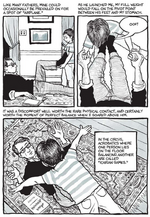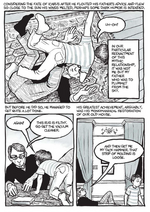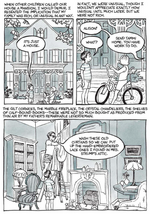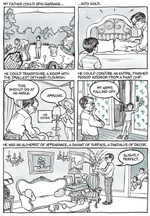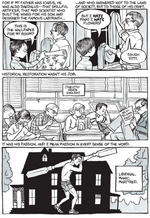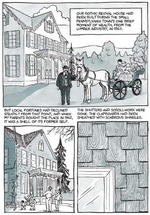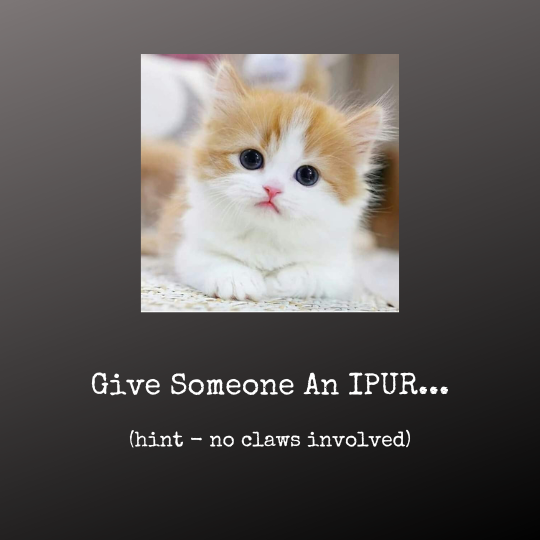There is no lake at Camp Green Lake. There once was a very large lake here, the largest lake in Texas. That was over a hundred years ago. Now it is just a dry, flat wasteland.
There used to be a town in Green Lake as well. The town shrivelled and dried up along with the lake and the people who lived there.
During the summer, the daytime temperature hovers around ninety-five degrees in the shade - if you can find any shade. There's not much shade in a big, dry lake.
The only trees are two old oaks on the eastern edge of the "lake". A hammock is stretched between the two trees, and a log cabin stands behind that.
The campers are forbidden to lie in the hammock. It belongs to the warden. The warden owns the shade.
Out on the lake, rattlesnakes and scorpions find shade under rocks and in the holes dug by campers.
Here's a good rule to remember about rattlesnakes and scorpions. If you don't bother them, they won't bother you.
Usually.
Being bitten by a scorpion or even by a rattlesnake is not the worst thing that can happen to you. You won't die.
Usually.
Sometimes a camper will try to be bitten by a scorpion, or even a small rattlesnake. Then he will get to spend a day or two recovering in his tent instead of having to dig a hole out on the lake.
But you don't want to be bitten by a yellow-spotted lizard. That's the worst thing that can happen to you. You will die.
Always.
If you get bitten by a yellow-spotted lizard, you might as well go into the shade of the oak trees and lie in the hammock.
There is nothing anyone can do to you anymore.
Holes by Louis Sachar (MG/YA humorous fiction, publ. 1998, Bloomsbury) [Opening]
Amazon product ASIN 1408865238
There used to be a town in Green Lake as well. The town shrivelled and dried up along with the lake and the people who lived there.
During the summer, the daytime temperature hovers around ninety-five degrees in the shade - if you can find any shade. There's not much shade in a big, dry lake.
The only trees are two old oaks on the eastern edge of the "lake". A hammock is stretched between the two trees, and a log cabin stands behind that.
The campers are forbidden to lie in the hammock. It belongs to the warden. The warden owns the shade.
Out on the lake, rattlesnakes and scorpions find shade under rocks and in the holes dug by campers.
Here's a good rule to remember about rattlesnakes and scorpions. If you don't bother them, they won't bother you.
Usually.
Being bitten by a scorpion or even by a rattlesnake is not the worst thing that can happen to you. You won't die.
Usually.
Sometimes a camper will try to be bitten by a scorpion, or even a small rattlesnake. Then he will get to spend a day or two recovering in his tent instead of having to dig a hole out on the lake.
But you don't want to be bitten by a yellow-spotted lizard. That's the worst thing that can happen to you. You will die.
Always.
If you get bitten by a yellow-spotted lizard, you might as well go into the shade of the oak trees and lie in the hammock.
There is nothing anyone can do to you anymore.
Holes by Louis Sachar (MG/YA humorous fiction, publ. 1998, Bloomsbury) [Opening]
Amazon product ASIN 1408865238


